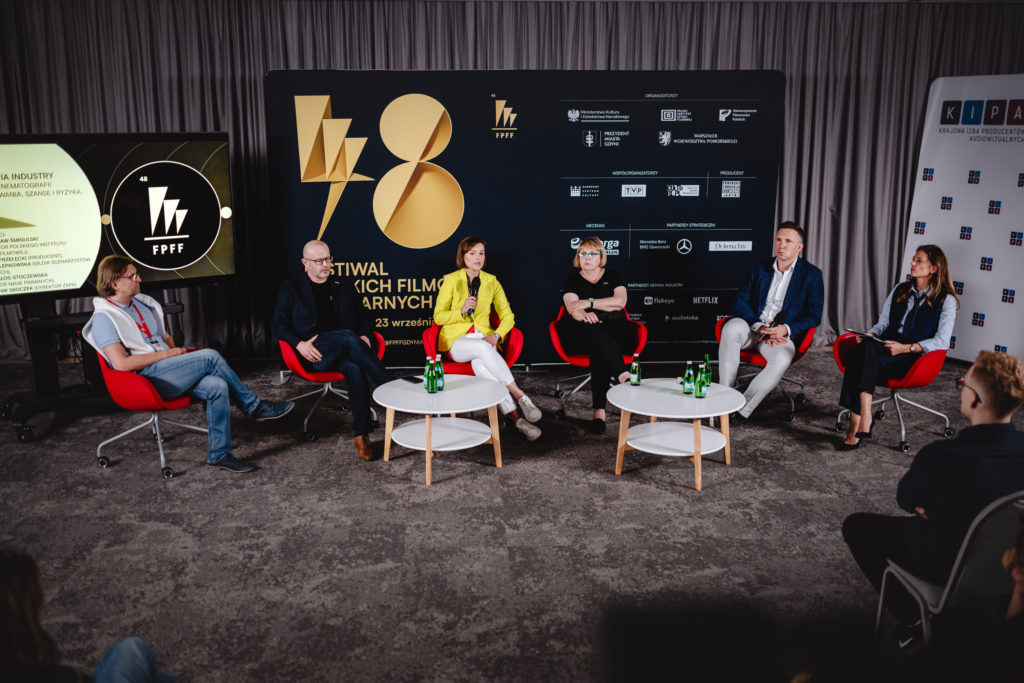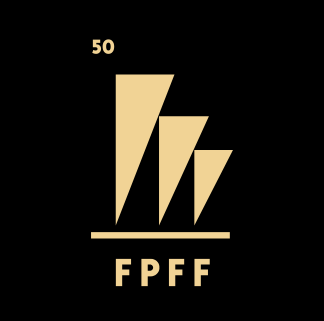Artificial intelligence: a fantastic tool or a threat to art and creativity?

During the Gdynia Industry event there was a panel dedicated to the use of artificial intelligence in film industry. The participants of the discussion were: screenwriter Ilona Łepkowska, Doctor of Juristic Science Iga Bałos-Stoczewska, Managing Director of ZAPA – The Union of Audiovisual Authors and Producers – Dominik Skoczek, producer Kamil Przełęcki, and additionally Radosław Śmigulski and Agnieszka Kogucka from the Polish Film Institute, who moderated the meeting.
Mateusz Demski
The main topics were the challenges, possibilities and risks the industry will face in the following years because of artificial intelligence. Cinema underwent many changes throughout the decades. For example, implementing colour and sound turned out to be revolutionary. The discussion started with a question, if the emergence of artificial intelligence promises the same kind of breakthrough.
Ilona Łepkowska: – It’s hard to tell. When it comes to artificial intelligence, we’re at the beginning of the road. What’s in the foreground right now is this fear and some uncertain demands to sort this issue legally, so it becomes more of an opportunity than a risk. It has to be regulated and controlled, because there is a danger, that this tool dominates our creativity.
Kamil Przełęcki: – New technologies did change the image of cinema more than once. The emergence of sound in 1927 was a great revolution, but also great concerns from those, who played in silent cinema. The same with colour, but it’s closer to the revolutions associated with distribution. Ten years ago we switched to digital and within a year we changed how we distribute and make films: it’s more convenient, quicker, and sometimes cheaper. I’m leaning towards seeing artificial intelligence as a fantastic tool for organisation, production and creation, that will replace humans at the tedious jobs in the name of creating something that was only possible before with enormous amounts of effort and money.
Ilona Łepkowska pointed out that this opportunity poses a threat to jobs of many people that work at film production. Kamil Przełęcki noted that digitalisation cost many people working at labs developing film their jobs, and it’s only a natural effect of technological advancement.
Kamil Przełęcki: We’re done having our books written by monks, we can print now. We may have to get new qualifications. New technologies create new jobs we can’t even name yet, but they’ll be necessary.
PFI General Director Radosław Śmigulski suggested that we may see AI usage as an opportunity for the art of film – as a tool that can’t create on its own, but offers new possibilities for creators while guided by a person.
Dominik Skoczek: All these tools use the data humans feed into them. The more data we supply, the more content they can create. That’s where the risk is – also artistically. If we feed the data into the tool wanting something out of it, at this moment, we share the data with every other user around the world. It’s a giant threat for authors – a threat to their art and their creativity.
Agnieszka Kogucka added that there’s still no tool available able to verify if, for example, a certain screenplay was written by a human creator or by a person with the help of artificial intelligence.
Dominik Skoczek: This is the very minimum of legal regulation we need. The audience, so every one of us, should know, if the end result is created in its entirety or in parts by artificial intelligence. It’s incredibly important to determine what is supplied into the AI tool, where the data originates, who owns it, and is it protected by copyrights.
Further issues discussed were about the legal ramifications and how we may protect ourselves from the threats of artificial intelligence.
Iga Bałos-Stoczewska: While pondering this issue, we, as lawyers, encounter two problems. One is about how to enforce it with the laws present right now and how to adjust these laws to the challenges that keep coming up. We try to answer questions from the creators, like: what if they singed a deal five years ago, when it wasn’t this common to feed data into AI tools; can they withdraw from the deal or demand their works isn’t used this way? There are several groups of interest, which always complicates legislative process.
However the press have recently publicised a case of U.S. Copyright Office refusing to register an image entirely generated by AI.
Iga Bałos-Stoczewska: – The issue isn’t about who can have the rights, but if it’s even legal to consider artificial intelligence a creator. There’s a bigger problem, when artificial intelligence is a tool used by a creator. […] A team of lawyers work to force legislative and judicial bodies to make a statement, because they don’t know how to interpret the laws there are. There is no coherent regulation in place to answer most of these questions.
The legal problems are numerous, and the questions still stand: is the industry ready for the challenge, and if so, how? But also, how will the film language change because of artificial intelligence?
[ed. note: a complete recording of the conversation can be found on the PFF YouTube channel LINK https://www.youtube.com/watch?v=w2ZpAFifWP0]
Kamil Przełęcki: I want to ask, will the film look the same it does now? Development of video games shows us that a linear narration from point A to point B doesn’t isn’t the only option. All these AI tools will allow us to tell stories in a multifaceted way, created in real time. Every audience member will experience their own plot development within the framework the creator sets in the game. This technology’s development, since the December of 2022, is an astonishment even for those well versed in the topic. Maybe in a few years it’ll create things that can hardly be called naïve.


